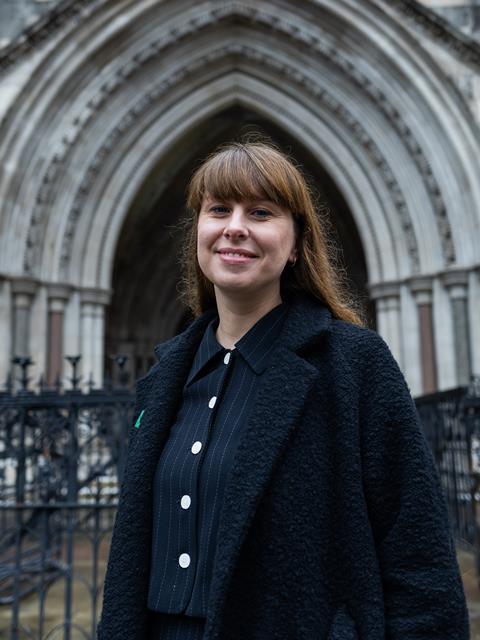Interview with Monidipa Fouzder
Human rights campaign group Liberty scored a major victory in May, when the Court of Appeal ruled that the government wrongly used ‘Henry VIII’ powers to pass protest legislation that altered the threshold for police intervention in public processions and assemblies.

‘The interesting thing about this case is that it was a vindication of Liberty’s approach to strategic litigation,’ solicitor Katy Watts tells me. ‘We had identified problematic powers in the regulations two years before legal proceedings were even contemplated.’
Liberty, which was founded in 1934, describes itself as ‘ordinary people standing up to power’ and the country’s largest civil liberties organisation. Other recent high-profile battles include action against police use of facial recognition technology.
Watts says litigation is led by Liberty’s campaign objectives and its approach to strategic litigation is ‘slow and targeted’ – as the protest legislation case demonstrates. ‘In 2021, we thought we might have to litigate this. We put a plan in place. When it actually happened two-and-a-half years later, we were in a strong position to litigate.’
Watts joined Liberty as a solicitor in 2020, but briefly worked at the organisation nearly a decade earlier in the advice and information team.
‘One thing I worked on at the time was around providing information to people who were able to apply to have certain kinds of convictions removed from their criminal record, for example historical gay sex offences.’
Watts secured a training contract at Public Law Project through the Justice First Fellowship. ‘One of the requirements of the training contract was to have a project. My project was about ensuring access to that scheme for the removal of historical convictions.’
Watts discovered that ‘importuning’ – the offence of a man chatting up another man for ‘an immoral purpose’ – was excluded from the scheme. Watts represented several men who had been convicted or cautioned. The offence was eventually added to the scheme.
Before joining Liberty first-time round, Watts worked at organisations such as British Red Cross, giving advice to members of the public. Seeing the results that followed when people were referred to a lawyer, and the power of a pre-action protocol letter, motivated her to pursue a career in the law.
The Justice First Fellowship was an ‘incredible opportunity’ to train at Public Law Project.
‘I joined after LASPO came into force. At the time, Public Law Project were doing incredible work challenging some of those huge cuts to legal aid and access to justice.’
Public Law Project’s work included ensuring the government’s exceptional case funding scheme was accessible, and looking at the means test and financial eligibility criteria. ‘I learnt a lot about the value of strategic litigation, identifying huge policy issues such as the cuts to legal aid and thinking about how the law can be used to mitigate the worst impacts of that.
‘Without the Justice First Fellowship, there wouldn’t have been a training contract at Public Law Project.’
Asked about the highlights during her six years at Public Law Project, Watts names one case in particular: GR v Director of Legal Aid Casework. GR, a low-income homeowner, was denied legal aid in a family court case on the ground of a house she owned with her ex-partner. The High Court ruled that the director of legal aid casework could use a discretion contained in the means regulations to treat a person unable to access the equity in their homes as being eligible for legal aid.
‘That led to a change in how the Legal Aid Agency deals with “trapped capital”,’ Watts says. ‘I’ve since heard from family practitioners and anecdotally the difference that has made to women in terms of getting legal aid.’
As for career highlights at Liberty, Watts cites the protest legislation case. ‘The reason for that is it was such a team effort. There was a lot of work from the legal perspective, with incredible counsel. But it was also a cross-team effort, spearheaded by our policy team, working so meticulously through the legislation as it was going through parliament.’
Watts has come a long way since she first joined Liberty. She recalls the ‘overwhelming experience’ of seeing prominent human rights campaigner, Shami Chakrabarti, Liberty’s director, around the office. ‘On my first day, she walked past me. I thought “Oh wow”.’
But despite Liberty’s huge profile and prominence, Watts is still astonished at how many people think she works for the department store that goes by the same name.
‘I need to qualify it by saying “Liberty, the human rights organisation”.’
Katy Watts is a lawyer at Liberty, London




































No comments yet